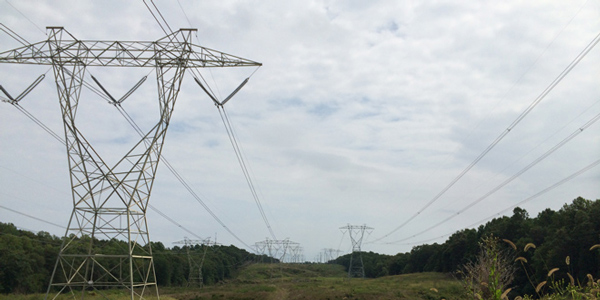By Amanda Durish Cook
FERC last week ordered PJM to revise its Tariff to comply with interconnection procedures that the commission established more than 15 years ago.
The May 10 order was a partial victory for American Electric Power Service Corp. (AEPSC), which in November filed a complaint against PJM on behalf of its transmission owners, arguing the RTO had failed to include an option-to-build indemnification provision in its Tariff, counter to long-established FERC policy (EL19-18).
AEPSC’s argument rested on FERC Order 2003, which established procedures and agreements for interconnection of new and expanded large generators, including a pro forma large generator interconnection agreement (LGIA) with transmission providers.
The order also set out an option-to-build provision that allowed interconnection customers to build interconnection facilities and standalone network upgrades “if the transmission provider notified the interconnection customer that it could not meet the in-service dates established by the interconnection customer.” After multiple TOs raised concern about possible reliability issues that could arise from customers upgrades, FERC added an indemnification provision to the wording of the pro forma.
In Order 845 issued last year, FERC determined that interconnection customers could build interconnection facilities “regardless of whether the transmission provider can meet the interconnection customer’s proposed in-service dates.” The commission this year clarified that the change doesn’t affect an LGIA’s indemnification and consequential damages provisions. (See ‘Boring Good’ Rulemaking Seeks to Clean up Order 845.)
In its complaint, AEPSC argued that PJM’s pro forma interconnection service agreement (ISA) and interconnection construction service agreement (ICSA) are unjust and unreasonable because neither included an indemnification provision “established in Order No. 2003 and clarified in Order No. 845.”
The RTO crafted the ISA and ICSA in 2002, after FERC’s Notice of Proposed Rulemaking on Order 2003, but before the commission issued the final rule that included the indemnification provision.
“In 2004, when PJM submitted its Order No. 2003 compliance filing, PJM failed to amend any option-to-build provisions, leaving the indemnification provision out of the PJM Tariff,” AEPSC explained to FERC.
The company contended that the indemnification provision is “one of the safeguards the commission included in the pro forma LGIA to address concerns that interconnection customers’ exercising the option to build could adversely affect transmission system safety and reliability.”
No Delay in Relief
In its response to the complaint, PJM contended that it already plans to add an “indemnification paragraph” to its pro forma ICSA as part of its upcoming Order 845 compliance filing.
Ordering modifications to the pro forma ISA and ICSA would be premature, PJM said, and would serve to undermine its stakeholder process.
“Because Order No. 845 addresses some of the same issues as the complaint, action on the complaint while PJM’s Order No. 845 compliance filing is pending is an inefficient use of regulatory resources,” the RTO said.
Guernsey Power Station agreed with PJM, saying the complaint is an attempt to “unilaterally rewrite the PJM Tariff without following the stakeholder process, imposing revisions that erect barriers to generator interconnection.”
PJM also argued that any deviations from Order 2003 in the pro forma ISA and ICSA “reflect an independent entity variation, vetted through stakeholder processes and accepted by the commission.” The RTO also argued that its current rules give TOs “sufficient protection.”
However, East Kentucky Power Cooperative, Duke Energy, FirstEnergy and PPL intervened in support of the complaint, arguing that TOs should expect equal treatment both inside and outside of PJM with respect to the indemnification protections.
FERC agreed.
“We find that PJM’s lack of an indemnification provision in the pro forma ICSA for facilities constructed under the option to build is inconsistent with the policy established in Order No. 2003 and creates an unjust and unreasonable result for transmission owners that must take title to customer-built facilities,” FERC said.
The commission also said relief couldn’t wait for PJM’s upcoming Order 845 compliance filing.
“Because we find PJM’s Tariff unjust and unreasonable, we direct PJM to file revised Tariff records that include an indemnity provision in the pro forma ICSA that complies with Order No. 2003 within 30 days of the date of this order rather than waiting for compliance with Order No. 845.”
But FERC declined to order all of AEPSC’s proposed revisions, including one that would have granted TOs indemnity on design, engineering and installation in addition to construction of the interconnection facilities constructed under the option-to-build provision. FERC also rejected AEPSC’s proposal to remove the limitation on damages of interconnection customer’s liability in both the pro forma ISA and ICSA.
However, FERC ordered PJM to add language to the pro forma ICSA giving TOs the right to review and approve a customer’s engineering design of an interconnection facility.





